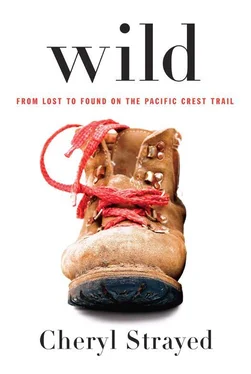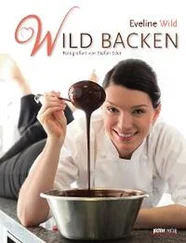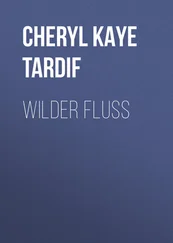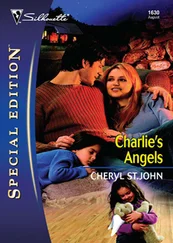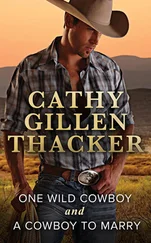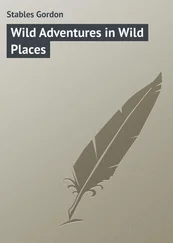Cheryl Strayed - Wild
Здесь есть возможность читать онлайн «Cheryl Strayed - Wild» весь текст электронной книги совершенно бесплатно (целиком полную версию без сокращений). В некоторых случаях можно слушать аудио, скачать через торрент в формате fb2 и присутствует краткое содержание. Год выпуска: 2012, ISBN: 2012, Жанр: Современная проза, на английском языке. Описание произведения, (предисловие) а так же отзывы посетителей доступны на портале библиотеки ЛибКат.
- Название:Wild
- Автор:
- Жанр:
- Год:2012
- ISBN:978-0-307-95765-8
- Рейтинг книги:4 / 5. Голосов: 1
-
Избранное:Добавить в избранное
- Отзывы:
-
Ваша оценка:
- 80
- 1
- 2
- 3
- 4
- 5
Wild: краткое содержание, описание и аннотация
Предлагаем к чтению аннотацию, описание, краткое содержание или предисловие (зависит от того, что написал сам автор книги «Wild»). Если вы не нашли необходимую информацию о книге — напишите в комментариях, мы постараемся отыскать её.
Wild — читать онлайн бесплатно полную книгу (весь текст) целиком
Ниже представлен текст книги, разбитый по страницам. Система сохранения места последней прочитанной страницы, позволяет с удобством читать онлайн бесплатно книгу «Wild», без необходимости каждый раз заново искать на чём Вы остановились. Поставьте закладку, и сможете в любой момент перейти на страницу, на которой закончили чтение.
Интервал:
Закладка:
After a while, the outlines of the landscape revealed themselves dimly to me. I was in a forest of tall pines and spruces, their limbless straight trunks culminating in clusters of dense branches high above me. I could hear a stream gurgling off to my left and feel the soft blanket of dry pine needles crackling beneath my boots. I walked with a kind of concentration I’d never had before, and because of it I could feel the trail and my body more acutely, as if I were walking barefoot and naked. It reminded me of being a child and learning how to ride a horse. My mother had taught me on her horse, Lady, letting me sit in the saddle while she stood holding a lead rope attached to Lady’s bridle. I clutched Lady’s mane with my hands at first, scared even when she walked, but eventually I relaxed and my mother implored me to close my eyes so I could feel the way the horse moved beneath me and the way my body moved with the horse. Later, I did the same thing with my arms held out wide on either side, going round and round, my body surrendering to Lady’s as we moved.
I made my way along the trail for twenty minutes until I came to a place where the trees opened up. I took off my pack and got down on my hands and knees with my headlamp to explore a spot that seemed like a reasonable place to sleep. I set up my tent, crawled inside, and zipped myself into my sleeping bag, though now I wasn’t even remotely tired, energized by the eviction and the late-night hike.
I opened up The Novel , but my headlamp was flickering and dying, so I turned it off and lay in the dark. I smoothed my hands over my arms, hugging myself. I could feel my tattoo beneath my right fingers; could still trace the horse’s outline. The woman who’d inked it had told me that it would stand up on my flesh for a few weeks, but it had remained that way even after a few months, as if the horse were embossed rather than inked into my skin. It wasn’t just a horse, that tattoo. It was Lady — the horse my mother had asked the doctor at the Mayo Clinic if she could ride when he’d told her she was going to die. Lady wasn’t her real name — it was only what we called her. She was a registered American Saddlebred, her official name spelled out in grandiose glory on the breeder’s association certificate that came with her: Stonewall’s Highland Nancy, sired by Stonewall Sensation and foaled by Mack’s Golden Queen. My mother had managed, against all reason, to buy Lady in the horrible winter when she and my father were finally and forever breaking up. My mother had met a couple at the restaurant where she worked as a waitress. They wanted to sell their purebred twelve-year-old mare for cheap, and even though my mother couldn’t afford even cheap, she went to see the horse and struck a deal with the couple to pay them three hundred dollars over the course of six months, and then she struck another deal with another couple who owned a stable nearby, doing work in exchange for Lady’s board.
“She’s breathtaking,” my mother said each time she described Lady, and she was. Over sixteen hands tall, lean and long-limbed, high-stepping and elegant as a queen. She had a white star on her forehead, but the rest of her coat was the same red chestnut as the fox I’d seen in the snow.
I was six when my mother bought her. We were living on the basement level of an apartment complex called Barbary Knoll. My mother had just left my father for the last time. We barely had enough money to live, but my mother had to have that horse. I knew instinctively, even as a child, that it was Lady who saved my mother’s life. Lady who made it possible for her not only to walk away from my father, but also to keep going. Horses were my mother’s religion. It was with them she’d wanted to be on all those Sundays as a child, when she’d been made to put on dresses to go to mass. The stories she told me about horses were a counterpoint to the other stories she’d told me about her Catholic upbringing. She did anything she could to ride them. She raked stalls and polished tack, hauled hay and spread straw, any kind of odd job that came her way, so that she would be allowed to hang out at whatever stable happened to be nearest and ride someone’s horse.
Images of her past cowgirl life came to me from time to time, captured in freeze-frame moments, as clear and concise to me as if I’d read them in a book. The overnight backcountry rides she’d done in New Mexico with her father. The daredevil rodeo tricks she’d practiced and performed with her girlfriends. At sixteen she got her own horse, a palomino named Pal, whom she rode in horse shows and rodeos in Colorado. She still had the ribbons when she died. I packed them in a box that was now in Lisa’s basement in Portland. A yellow third for barrel racing, a pink fifth for walk, trot, canter; green for showmanship and participation; and a single blue ribbon for riding her horse through all of the gaits smoothly over a course lined with mud pits and tight corners, laughing clowns and blaring horns, while she balanced an egg on a silver spoon in her outstretched hand for longer than anyone else could or did.
In the stable where Lady first lived when she became ours, my mother did the same work she’d done as a kid, cleaning stalls and spreading hay, hauling things to and fro in a wheelbarrow. Often, she brought Karen, Leif, and me with her. We played in the barn while she did her chores. Afterwards, we watched her ride Lady around and around the ring, each of us getting a turn when she was done. By the time we moved to our land in northern Minnesota, we had a second horse, a mixed-breed gelding named Roger, whom my mother had bought because I’d fallen in love with him and his owner was willing to let him go for next to nothing. We hauled them both up north in a borrowed trailer. Their pasture was a quarter of our forty acres.
When I went home one day to visit Eddie in early December nearly three years after my mother died, I was shocked by how thin and weak Lady had become. She was nearly thirty-one, old for a horse, and even if nursing her back to health had been possible, no one was around enough to do it. Eddie and his girlfriend had begun splitting their time between the house where I’d grown up and a trailer in a small town outside the Twin Cities. The two dogs, two cats, and four hens we’d had when my mother died had either died themselves or been given away to new homes. Only our two horses, Roger and Lady, remained. Often, they were cared for in the most cursory way by a neighbor whom Eddie had enlisted to feed them.
When I visited that early December, I talked to Eddie about Lady’s condition. He was belligerent at first, telling me that he didn’t know why the horses were his problem. I didn’t have the heart to argue with him about why, as my mother’s widower, he was responsible for her horses. I spoke only about Lady, persistent about making a plan, and after a while he softened his tone and we agreed that Lady should be put down. She was old and sickly; she’d lost an alarming amount of weight; the light in her eyes had faded. I’d consulted with the veterinarian already, I told him. The vet could come to our place and euthanize Lady with an injection. That, or we could shoot her ourselves.
Eddie thought we should do the latter. We were both flat broke. It was how horses had been put down for generations. It seemed to both of us a strangely more humane thing to do — that she’d die at the hands of someone she knew and trusted, rather than a stranger. Eddie said he’d do it before Paul and I returned for Christmas in a few weeks. We wouldn’t be coming for a family occasion: Paul and I would be in the house alone. Eddie planned to spend Christmas at his girlfriend’s place with her and her kids. Karen and Leif had plans of their own too — Leif would be in St. Paul with his girlfriend and her family, and Karen with the husband she’d met and married within the span of a few weeks earlier that year.
Читать дальшеИнтервал:
Закладка:
Похожие книги на «Wild»
Представляем Вашему вниманию похожие книги на «Wild» списком для выбора. Мы отобрали схожую по названию и смыслу литературу в надежде предоставить читателям больше вариантов отыскать новые, интересные, ещё непрочитанные произведения.
Обсуждение, отзывы о книге «Wild» и просто собственные мнения читателей. Оставьте ваши комментарии, напишите, что Вы думаете о произведении, его смысле или главных героях. Укажите что конкретно понравилось, а что нет, и почему Вы так считаете.
